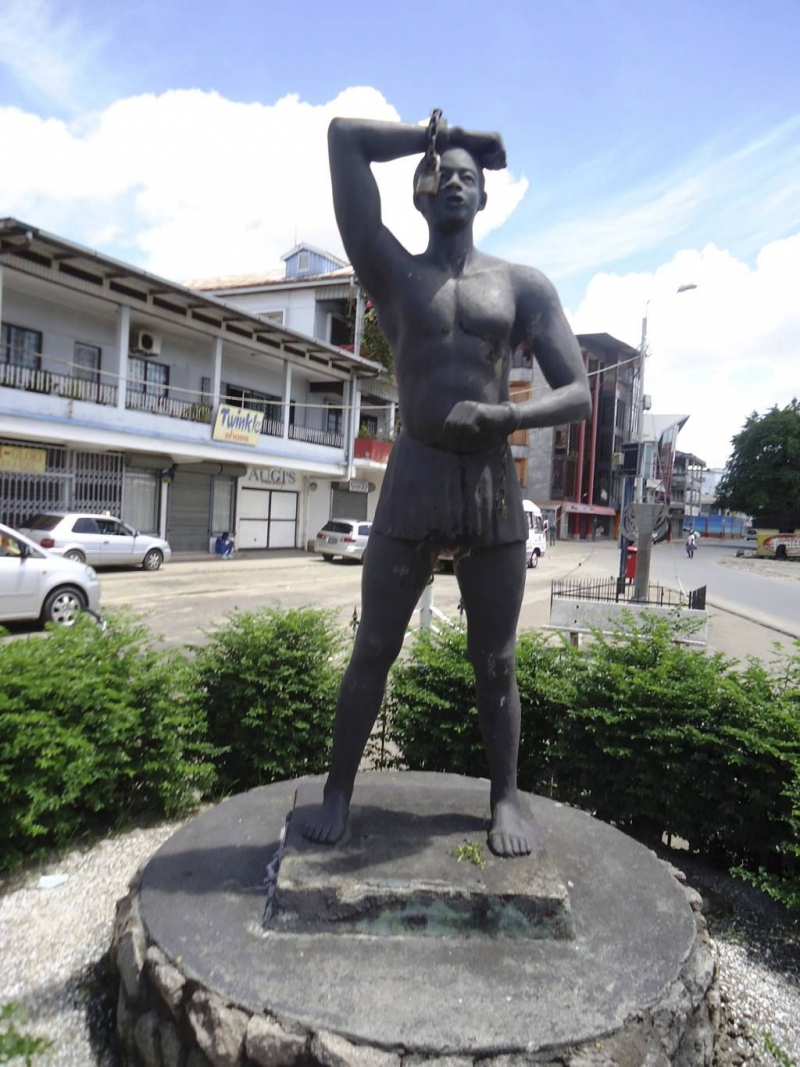Kwakoe
The Kwakoe statue is a memorial honoring the end of slavery and is located in Paramaribo, the capital of Suriname, and is created by a sculptor, Jozef Klas. Wednesday is referred to as Kwakoe in the Maroon language of Surinam known as Kromanti. In other words, on Wednesday, July 1, 1863, slavery was abolished. In honor of the 100th anniversary of slavery in Suriname on July 1, 1963, Prime Minister J.A. Pengel unveiled the sculpture on June 30. A freed African slave is shown breaking his own shackles in the monument.
The statue is situated at the intersection of Zwartenhovenbrug Street and Dr. Sophie Redmond Street in Paramaribo, the Surinamese capital, next to the Ondrobon bus station.
There are several statues in Paramaribo, but none of them has ever attained the same level of notoriety as Kwakoe's. Though it has been claimed that Kwakoe would have been the country of Suriname's first black landowner, it does not depict a real character. The Afro-Surinamese soon accepted the monument of Jozef Klas as the finest illustration of their freedom from their past of slavery. Even now, it is frequently given clothing, particularly the Pangi, and headgear. The maroons still cover their shoulders with their vibrant scarves. Meetings, encounters, and manifestations frequently take place at the Kwakoe statue.
A Committee of the Statue of Liberty, a women's organization chaired by Mrs. U. Breeveld-Silos, was established to materialize the statue. She was one of the speakers at the 1963 unveiling. The male chorus "Harmonie" and the youth choir "Evangelische Broedergemeente" gave performances, while florist L. de Gapadose presented a wreath in the Surinamese flag's colors.








